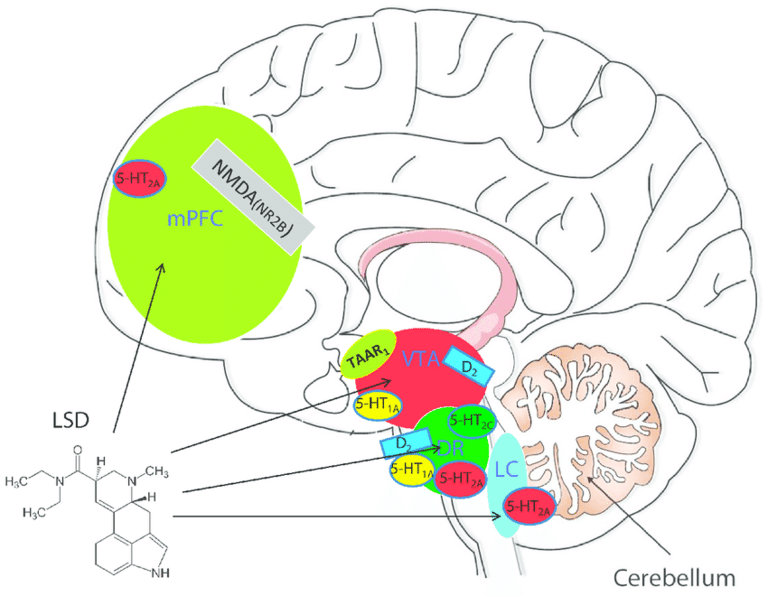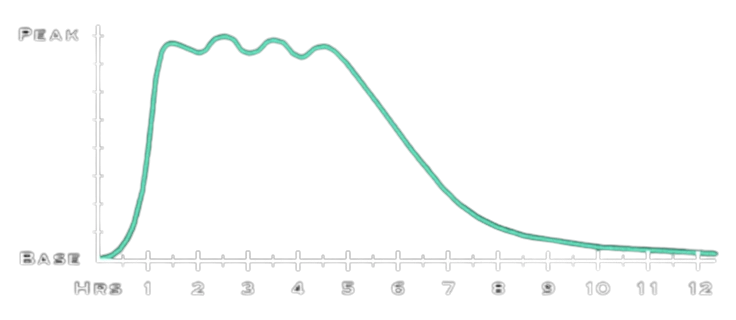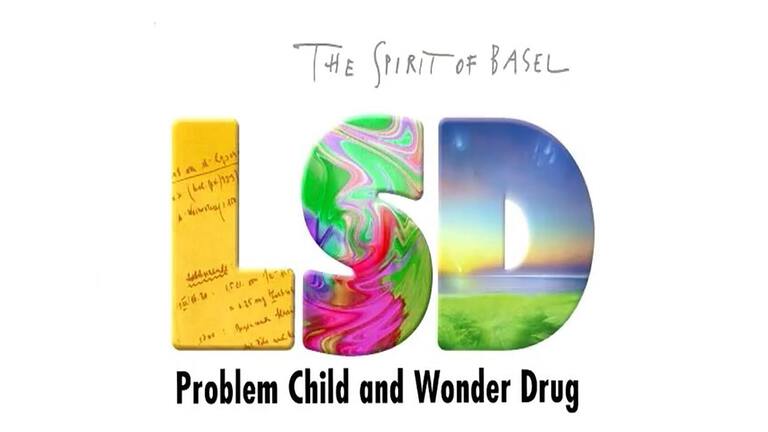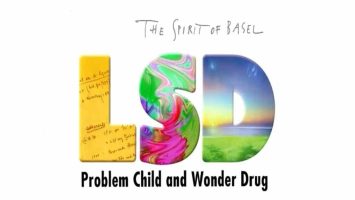How LSD works
To the perception of the person taking it, the effects of LSD are very similar to those of other psychedelics such as magic mushrooms, DMT, ayahuasca and many others. Its mind-altering effects are largely due to the stimulation of the 5HT2a receptors in the brain (frontal lobe), which is in fact stimulated by all psychedelics. However, LSD has a unique potency in that it binds to these receptors much more strongly than other psychedelics. This results in a more intense and long-lasting experience, with trips lasting up to 12 hours, unlike the shorter effects of psilocybin, for example. The binding of LSD to the 5HT2a receptors leads to significant changes in perception, emotion and consciousness. This can result in visual hallucinations, heightened introspection and even mystical experiences.

LSD is more powerful than other psychedelics
LSD can bind itself to the 5HT2a receptors much better than any other known psychedelic. It seems as if LSD sticks and screws itself to the receptor, which is why an LSD trip often lasts very long as well. An LSD trip can last between 8 and 12 hours, while other psychedelics such as magic mushrooms generate a trip of between 3 and 8 hours. Also, the visual hallucinations can be more intense than what most LSD users expect beforehand.

The disadvantages of LSD
The potency of LSD is also its biggest disadvantage. It seems that of all psychedelics, LSD has the highest risk of psychosis. In my opinion, this is mainly because the trip can last so long that eventually the line between what is real and “fake” begins to blur. What then is an illusion and which illusion is an illusion within an illusion? Another person may realize during a trip that the life we know is probably also a hallucination. Ultimately, the world we see is a representation of what we believe we see.
Other disadvantages may include:

- The trip turns out to be more intense than you had anticipated.
- Bad trip (fear, panic, restlessness).
- Psychiatric illnesses (depression, psychosis) may worsen or last longer.
- Injury caused by being in a dangerous or awkward situation.
- In people with psychiatric illnesses such as depression or psychosis, LSD intensifies the condition.
- Dormant depression and psychosis can surface and cause long-term distress. Medical treatment is then needed.
- If you have an illness and/or are taking medication, using LSD is not recommended. It can have dangerous or very unpleasant consequences. Some types of antidepressant drugs (tri-cyclic) lead to LSD overdose.
- There are reports of users who continue to suffer from long-term vision abnormalities (HPPD). They see highly disturbing abnormalities in colour, shape, movement, contrast and so on.
IS LSD suitable for microdosing?
Because of LSD's long-acting nature, microdosing is certainly quite possible. Measuring out the dose precisely is difficult because LSD is so powerful. This is because we are talking about micrograms of LSD. That is a factor of 1000 less than milligrams. If the microdoses have already been prepared and match the desired microdose, dosing is no longer a problem.
Another point to consider is sleep. If you sleep less easily, LSD is probably active for too long and you should dose lower or take the microdose very early in the morning straight away.
Another question is whether you want to microdose. In the case of fighting depression, burnout, anxiety etc, microdosing is just a remedy that suppresses symptoms. Suppose poor lifestyle leads to depression (can be due to diet). If the LSD then makes you stop feeling the depression, you will still continue to eat/live poorly and actually continue to wreck your body. So even if you do go microdosing, try to figure out where your areas of improvement can lie.
Is LSD suitable for psychedelic therapy?
LSD can be suitable for psychedelic therapy; for instance, people with OCD are more likely to benefit from an LSD session than other groups. However, LSD does have some limitations (because of its intensity and long duration of action) that you don't suffer from or suffer less from if you use psilocybin as a trip drug, for instance. So LSD is often not the best choice when it comes to a therapeutic psychedelic trip drug. I personally do think that a microdose to small dose of LSD combined with a higher dose of magic mushrooms, magic truffles or psilocybin can contribute positively to the therapeutic effect of trip therapy, because you can achieve a longer light afterglow, so to speak. By the way, combining LSD with psilocybin is called a wizard flip and gives a lot of colourful and detailed hallucinations while the trip does not last too long, around six hours.
